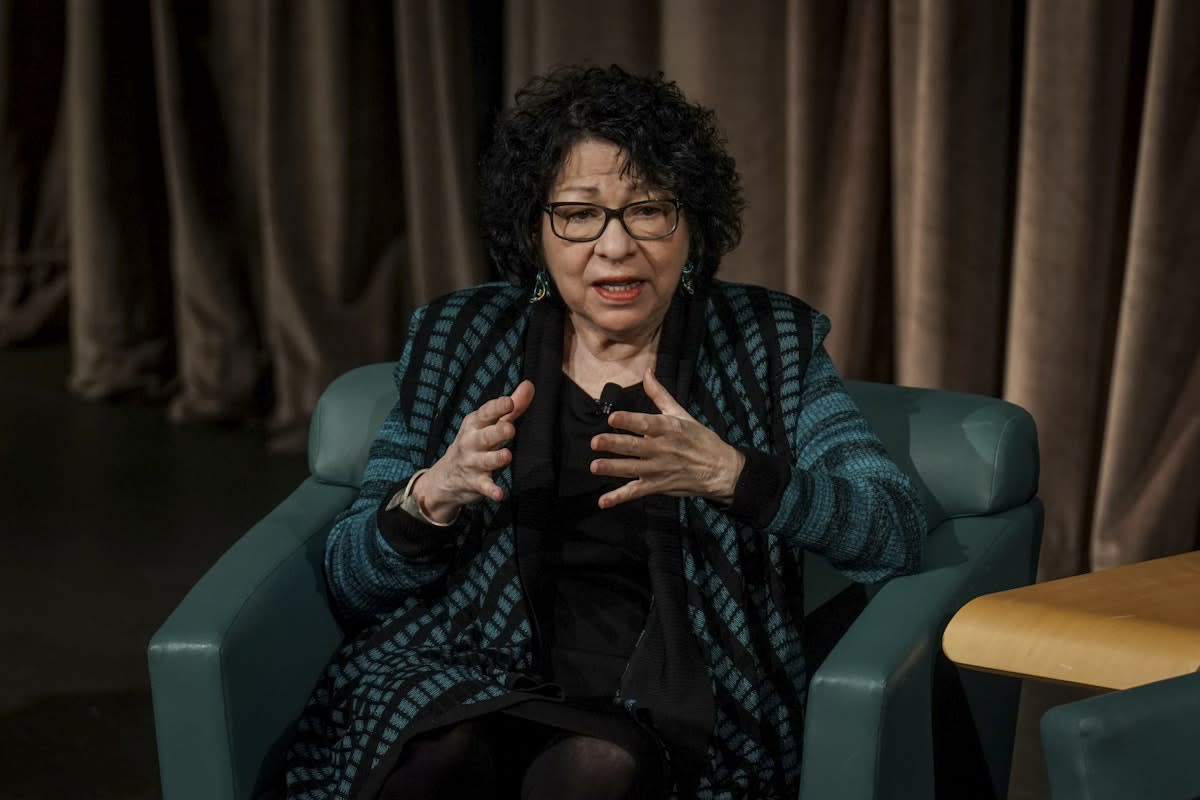Sotomayor Issues Dire Warning on Supreme Court Ruling on Noncitizens

In a ruling delivered Friday, the Supreme Court decided 6–3 that U.S. citizens have no constitutional interest in their noncitizen spouses being able to enter the United States—despite the fact that a married person has an inherent interest in their spouse being able to live in the same country as they do. Supreme Court Justice Sonia Sotomayor warned the ruling is an obvious sign the court will seek to overturn protections for marriage equality next.
Sotomayor issued a dire warning in her dissent, accusing the conservative supermajority of chipping away at constitutional protections for married couples and saying they’re making “the same fatal error” as they did in Dobbs v. Jackson, the 2022 Supreme Court ruling that overturned federal abortion protections.
“The majority, ignoring these precedents, makes the same fatal error it made in Dobbs: requiring too ‘careful [a] description of the asserted fundamental liberty interest,’” Sotomayor wrote. “The majority’s failure to respect the right to marriage in this country consigns U.S. citizens to rely on the fickle grace of other countries’ immigration laws to vindicate one of the ‘basic civil rights of man’ and live alongside their spouses.”
The case involved Sandra Muñoz, a U.S. citizen whose husband was denied a visa by the U.S. consulate in El Salvador. That denial came from a broad provision in U.S. immigration law that disqualifies a person from obtaining a visa if the consulate knows “or has reasonable ground to believe” that a person is trying to enter the U.S. “to engage solely, principally, or incidentally in” unlawful activity. Her husband was denied because of tattoos he has, which a court-appointed gang tattoo expert later determined were not gang-related.
Muñoz sued the State Department, arguing that her husband’s inexplicable denial of entry into the U.S. infringed on her constitutional liberty interest in her husband’s visa application and their inability to start a life together in the U.S. In upholding the denial, the Supreme Court’s conservative justices decided not just that the State Department doesn’t need to provide reason for denying a visa but that a citizen’s right to be married doesn’t supersede the state’s strict, and often questionable, immigration processes. The conservative supermajority of the Supreme Court’s ruling chips away at the core of Obergefell v. Hodges—the landmark ruling that legalized same-sex marriage in 2015—which decided that citizens have a right to marriage.
In her dissent, Sotomayor cast urgent warnings on the impact of restricting who is allowed to be married in the U.S., noting that the conservative decision will extend to couples “like the Lovings and the Obergefells, [who] depend on American law for their marriages’ validity.”
“Same-sex couples may be forced to relocate to countries that do not recognize same-sex marriage, or even those that criminalize homosexuality,” Sotomayor added. “Obergefell rejected what the majority does today as ‘inconsistent with the approach this Court has used in discussing [the] fundamental rights’ of ‘marriage and intimacy.’”
“Despite the majority’s assurance two Terms ago that its eradication of the right to abortion ‘does not undermine … in any way’ other entrenched substantive due process rights such as ‘the right to marry,’ ‘the right to reside with relatives,’ and ‘the right to make decisions about the education of one’s children,’ the Court fails at the first pass,” Sotomayor wrote in dissenting the conservative supermajority’s decision issued on Friday.

